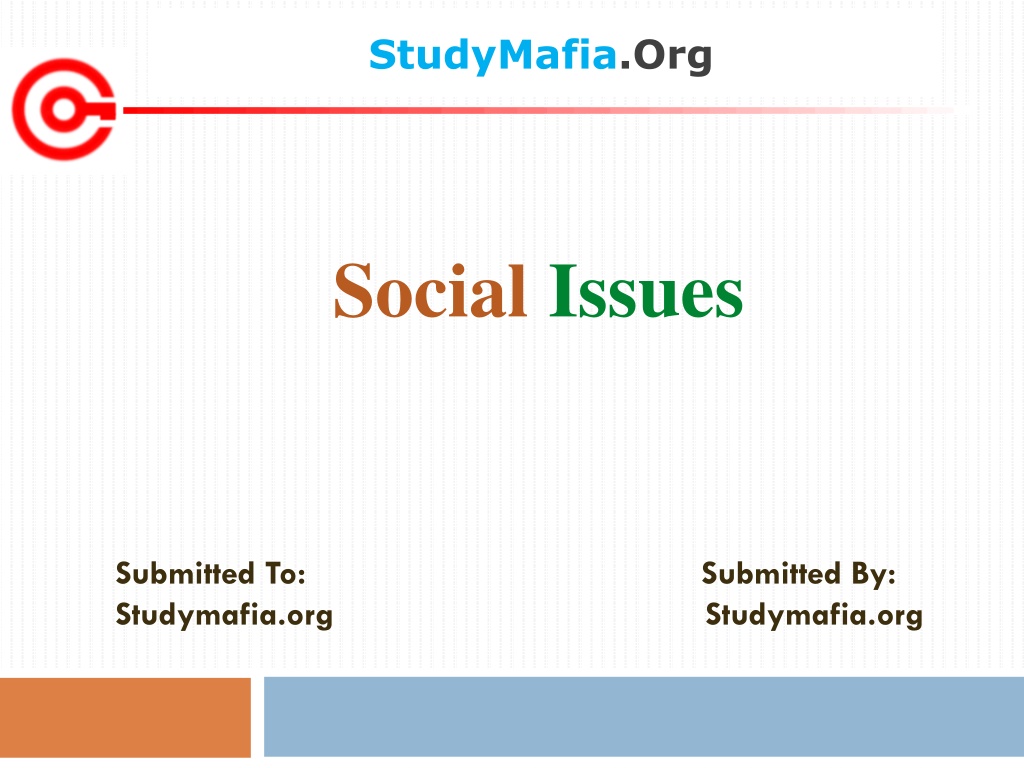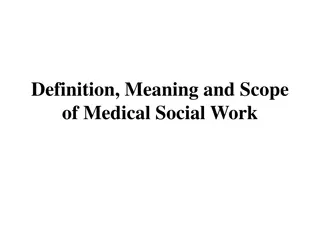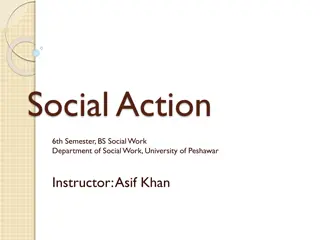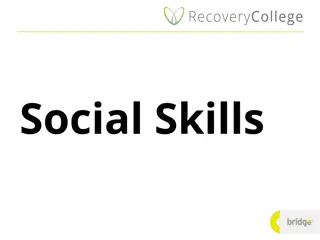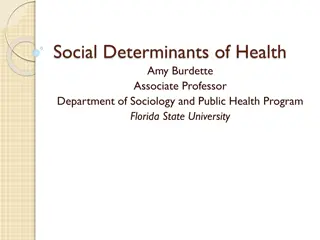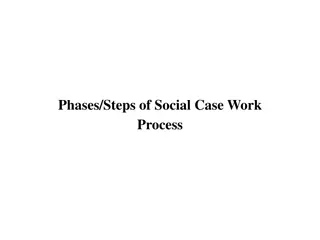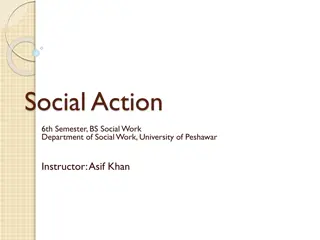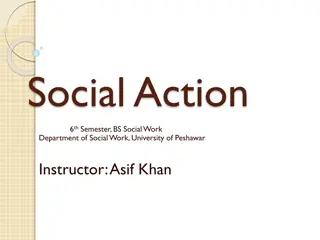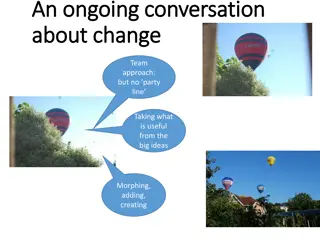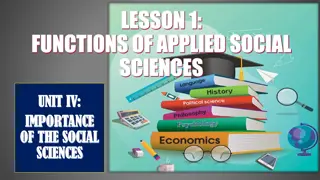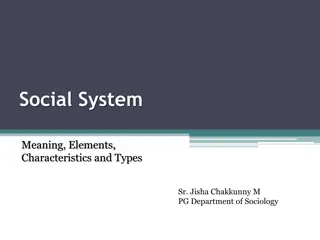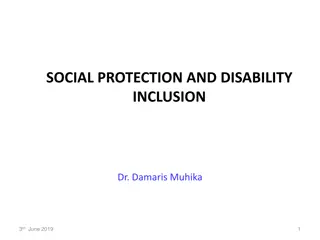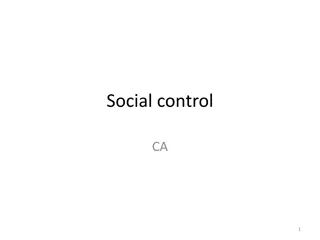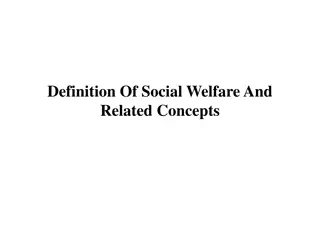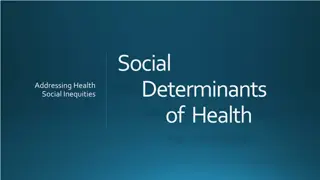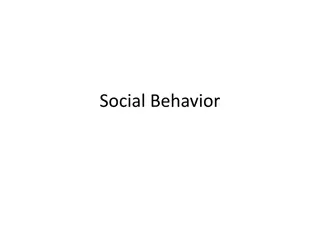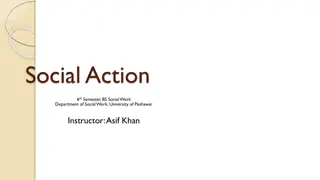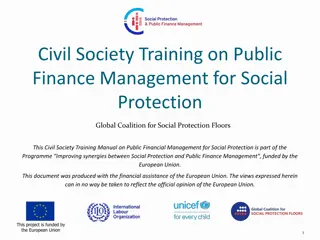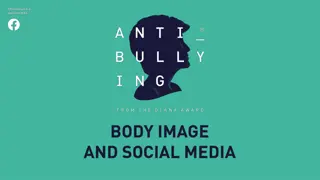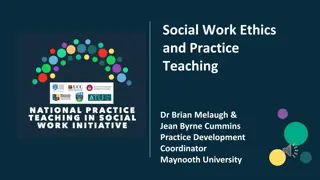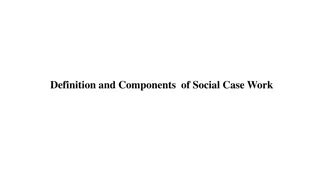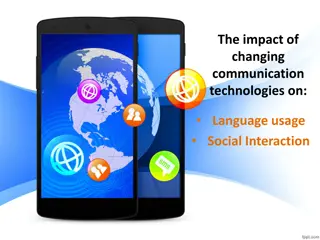Understanding Social Issues: Impact and Solutions
Social issues encompass a wide range of topics that impact society, from animal experimentation to depression. These issues reflect current events and longstanding problems, challenging us to think critically and seek solutions. Through this exploration, we gain insights into global challenges and the importance of addressing them effectively.
Download Presentation

Please find below an Image/Link to download the presentation.
The content on the website is provided AS IS for your information and personal use only. It may not be sold, licensed, or shared on other websites without obtaining consent from the author. Download presentation by click this link. If you encounter any issues during the download, it is possible that the publisher has removed the file from their server.
E N D
Presentation Transcript
StudyMafia.Org Social Issues Submitted To: Submitted By: Studymafia.org Studymafia.org
Table Contents Definition Introduction Types of Social Issues Solutions of Social Issues Conclusion 2
Definition Social issues are topics or subjects that impact many people. They often reflect current events but also represent longstanding problems or disagreements that are difficult to solve 3
Introduction Beliefs, opinions, and viewpoints can be strong, and debate on these topics is a natural outcome of public discourse. Globally, subjects including climate change, immigration, and women s rights impact people around the world. Social issues are important research topics because they help people understand that there are many ways to think about and approach the same problem, and they teach essential critical thinking skills. 4
Types of Social Issues ANIMAL EXPERIMENTATION Animal experimentation, also called animal testing, has contributed to many important scientific and medical discoveries; many people object to the use of animals in scientific studies because animals are denied their freedom and often suffer injury and discomfort; others identify certain practices as cruel while still recognizing the benefits. 6
Types of Social Issues CHILD BULLYING The definition of bullying has expanded beyond traditional notions of a bigger, stronger child picking on a smaller, weaker victim. Bullying can occur in virtually any interpersonal setting. While it affects young people as well as adults, the issue is primarily considered in contexts involving school-aged children and adolescents. 7
Types of Social Issues DEPRESSION Depression is a mood disorder that causes persistent feelings of sadness, hopelessness, and decreased energy. However, depression is more than just unhappiness. It can be severe enough to interfere with work, school, and other daily activities. Doctors also refer to this condition as major depressive disorder or clinical depression. 8
Types of Social Issues GLOBAL WARMING The term global warming first appeared in geochemist Wallace Broecker's 1975 Science magazine article, "Climatic Change: Are We on the Brink of a Pronounced Global Warming?" Scientists began studying the effect of greenhouse gases on Earth's climate more than a century prior, however, as early as 1820. 9
Types of Social Issues IMMIGRATION Immigration involves moving to a new country with the intention of settling there permanently after leaving one's country of citizenship. The impact of immigration on receiving countries has stirred debate among those who feel that immigrants enhance a local population and those who view immigrants as a threat. 10
Types of Social Issues IMPEACHMENT In the United States, impeachment refers to the process through which a public official can be investigated for removal from office, which may also result in his or her prohibition from holding future public office if suspected of "treason, bribery, or other high crimes and misdemeanors." 11
Types of Social Issues VACCINATION Vaccines allow your body to produce infection- fighting cells and pathogen-specific antibodies, which are the molecules that remain in your immune system and recognize and attack pathogens. A vaccine mimics an infection by exposing your immune system to a weakened or dead pathogen and build up protection against it. 12
Types of Social Issues WOMEN'S RIGHTS Movements for the equal rights of women have been shaped in response to a system of patriarchal social norms and laws that, according to historians and social scientists, formed the basis of cultural, political, and economic life. Despite the achievements, feminist scholars argue that the remnants of coverture still operate in legal and social institutions. 13
Types of Social Issues POVERTY Poverty is the state of having few material possessions or little income. Poverty can have diverse social, economic, and political causes and effects. 14
Types of Social Issues DISCRIMINATION Discrimination is the act of making unjustified distinctions between people based on the groups, classes, or other categories to which they belong or are perceived to belong. People may be discriminated on the basis of race, gender, age, religion, disability, or sexual orientation, as well as other categories. 15
Solutions of Social Issues Poverty-By providing education, skill training and job opportunities in a society. Increase the education budget. Provide them with scholarships and opportunities, to get the best achievable education from the top universal of the world. 16
Solutions of Social Issues People who are employed and are above the poverty line should take steps towards replacing child workers with adult workers. It will benefit not only the society, but the country at large. 17
Solutions of Social Issues Gender equality and women education is very important to stop the evil practice of child marriage. The girls become extremely dependent upon her parents because of lack of education. 18
Conclusion Social issues (also social problem, social evil, and social conflict) refers to any undesirable condition that is opposed either by the whole society or by a section of the society. It is an unwanted social condition, often objectionable, the continuance of which is harmful for the society. 20
References Google.com Wikipedia.org Studymafia.org Slidespanda.com
Thanks To StudyMafia.org
